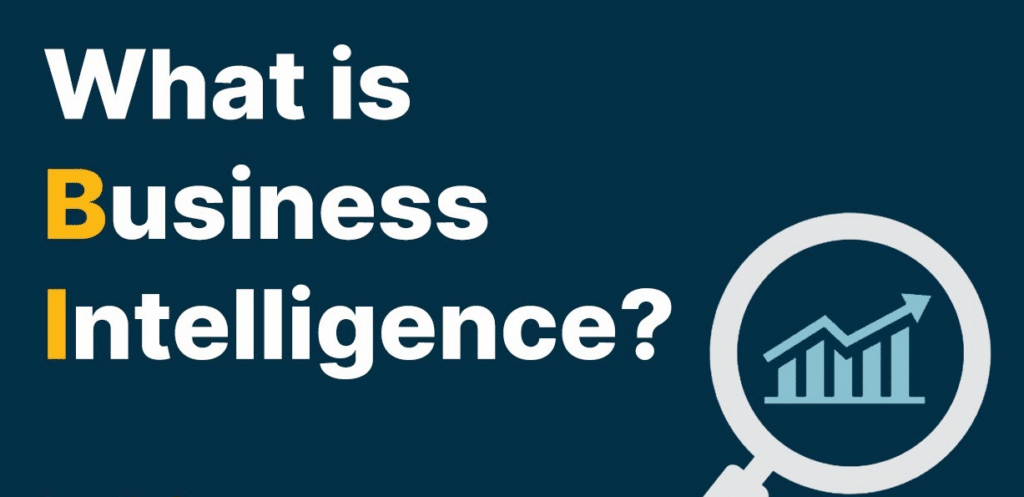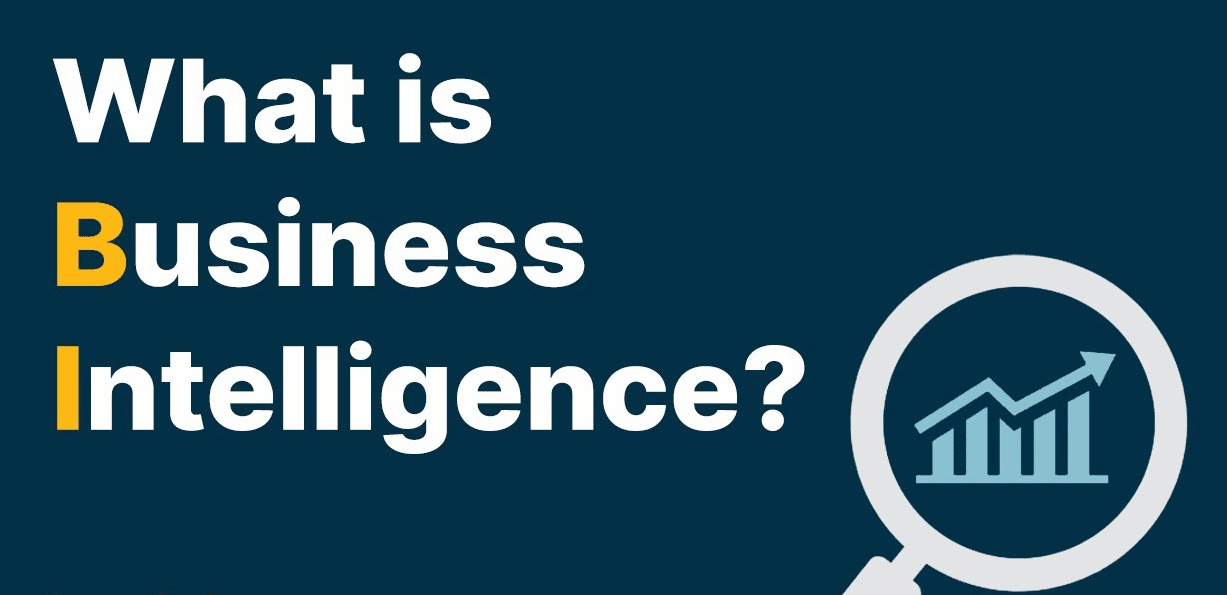In today’s fast-paced business landscape, staying competitive is not just about intuition; it’s about harnessing the power of data. Welcome to the world of Business Intelligence (BI). In this comprehensive guide, we will delve into the depths of What Is Business Intelligence, exploring its various aspects and shedding light on its importance in the corporate world.
What Is Business Intelligence?

Business Intelligence, often abbreviated as BI, is the process of collecting, analyzing, and transforming raw data into actionable insights to make informed business decisions. It’s the compass that guides organizations through the complex maze of data, enabling them to navigate and thrive in a data-driven era.
The Evolution of Business Intelligence
BI is not a recent phenomenon. It has evolved over decades, adapting to technological advancements. Let’s take a journey through its history to understand how it has transformed businesses.
1. Early Beginnings
Business Intelligence traces its roots to the 19th century when business owners relied on basic reports and spreadsheets for decision-making.
2. Emergence of Computers
With the advent of computers in the mid-20th century, BI gained a new dimension. It became more data-centric and efficient.
3. The Digital Revolution
The 21st century saw BI embracing digital technologies, leading to the development of advanced analytics and data visualization tools.
The Components of Business Intelligence
To comprehend BI fully, we need to break it down into its essential components.
1. Data Collection
BI begins with the collection of data from various sources, including internal databases, external data providers, and IoT devices.
2. Data Processing
Raw data is processed, cleaned, and transformed into a usable format. This step is crucial for accurate analysis.
3. Data Analysis
BI tools employ algorithms and statistical methods to analyze data, uncovering patterns, trends, and anomalies.
4. Data Visualization
The insights derived from data are presented visually through charts, graphs, and dashboards for easy interpretation.
5. Reporting
BI generates reports that provide a snapshot of an organization’s performance, helping stakeholders make informed decisions.
Why Business Intelligence Matters
Business Intelligence is not just a buzzword; it’s a game-changer for businesses. Here’s why it matters:
1. Informed Decision-Making
BI empowers decision-makers with real-time, data-driven insights, reducing the reliance on gut feelings.
2. Competitive Advantage
Companies that harness BI gain a competitive edge by identifying market trends and customer preferences.
3. Operational Efficiency
Streamlining processes and optimizing resource allocation become more efficient with BI.
4. Improved Customer Experience
BI enables organizations to personalize offerings and enhance customer satisfaction.
FAQs (Frequently Asked Questions)
How does Business Intelligence benefit small businesses?
Business Intelligence is not exclusive to large corporations. Small businesses can use BI tools to gain insights into their operations, customer behavior, and market trends, enabling them to make informed decisions and compete effectively.
What role does AI play in Business Intelligence?
Artificial Intelligence (AI) is integral to BI as it automates data analysis, predicts future trends, and enhances decision-making. AI-driven BI tools can uncover insights that might go unnoticed with manual analysis.
Is Business Intelligence only about numbers and statistics?
No, BI is not just about crunching numbers. It involves interpreting data in a meaningful context, which may include text, images, and even social media sentiment analysis.
Can Business Intelligence tools integrate with other software used by a company?
Yes, most BI tools are designed to integrate with various software applications, making it easier to access and analyze data from multiple sources.
What skills are essential for a career in Business Intelligence?
A BI professional should have strong analytical skills, a good understanding of data modeling, and proficiency in BI tools like Tableau, Power BI, or QlikView.
Are there any ethical concerns related to Business Intelligence?
Yes, BI raises ethical concerns related to data privacy, security, and bias in data analysis. Companies must address these issues to maintain trust and compliance.
Conclusion
Business Intelligence is not just a buzzword it’s a strategic necessity in today’s data-driven business landscape. By collecting, analyzing, and transforming data into actionable insights, BI empowers organizations to make informed decisions, gain a competitive edge, and drive success. Embrace the power of BI and watch your business thrive in the digital age.
